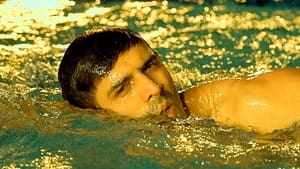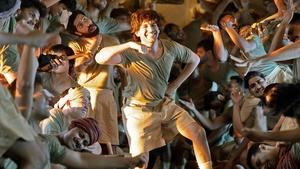
Video Sources 139 Views Report Error

Synopsis
With nine bullet wounds, one of which remains lodged in his body, and a history of competing in three different sports, Muralikant Petkar exemplifies unyielding determination and resilience. His journey from a wounded soldier to becoming India’s first Paralympic gold medalist is nothing short of extraordinary. Despite his groundbreaking achievement, it took 45 long years for his homeland to finally recognize his unparalleled contributions to sports and his country.
Muralikant Petkar’s story begins on the battlefield, where he served as a soldier. During a fierce conflict, he sustained nine bullet wounds that left him critically injured and changed the course of his life forever. Among these wounds, one bullet remained in his body, a constant reminder of his sacrifice and the battles he fought both on and off the field.
Refusing to be defined by his injuries, Petkar channeled his indomitable spirit into sports. He did not limit himself to one sport; instead, he pursued excellence in multiple disciplines. He competed in swimming, table tennis, and athletics, showcasing his versatility and commitment to defying the odds. His dedication to sports was not just about personal achievement; it was a testament to his unshakeable resolve to inspire others and redefine what was possible for people with disabilities.
The pinnacle of Petkar’s sporting career came at the 1972 Summer Paralympics held in Heidelberg, Germany. Competing in the 50-meter freestyle swimming event, Petkar delivered a performance that would etch his name in history. He not only won the gold medal but also set a world record with his time of 37.33 seconds. This monumental achievement made him the first Indian to win a Paralympic gold medal, a feat that no other athlete from his country had accomplished before.
Despite this historic victory, recognition and accolades were not immediately forthcoming. For decades, Petkar’s remarkable contributions remained largely uncelebrated in his own country. It wasn’t until 45 years later that he received the acknowledgment he rightfully deserved. The delay in recognition highlights the challenges faced by many athletes with disabilities, who often struggle for visibility and appreciation despite their extraordinary achievements.
Muralikant Petkar’s story is not just about winning a gold medal; it is about the perseverance and courage required to overcome immense physical and societal challenges. His journey from a wounded soldier to a Paralympic champion serves as an inspiration to countless individuals facing their own battles. Petkar’s legacy extends beyond his medals and records; it lies in the hope and motivation he provides to others to pursue their dreams, no matter the obstacles.
In recognizing Petkar’s achievements, India has taken a step towards honoring the incredible talent and spirit of its Paralympic athletes. His story is a powerful reminder of the need for greater support and acknowledgment for athletes with disabilities, who continuously push the boundaries of human potential. Muralikant Petkar’s life and career are a testament to the strength of the human spirit and the transformative power of sports.
Original title चंदू चैंपियन
IMDb Rating 8.2 25,175 votes
TMDb Rating 7 3 votes
Director
Director
Cast
Murlikant Petkar
Tiger Ali
Karnail Singh
Topaz
Uttam Singh
Nayantara (Journalist)
Jagannath Rajaram Petkar
Prisoner
Murali's mother
INHS Ashwin Nurse































